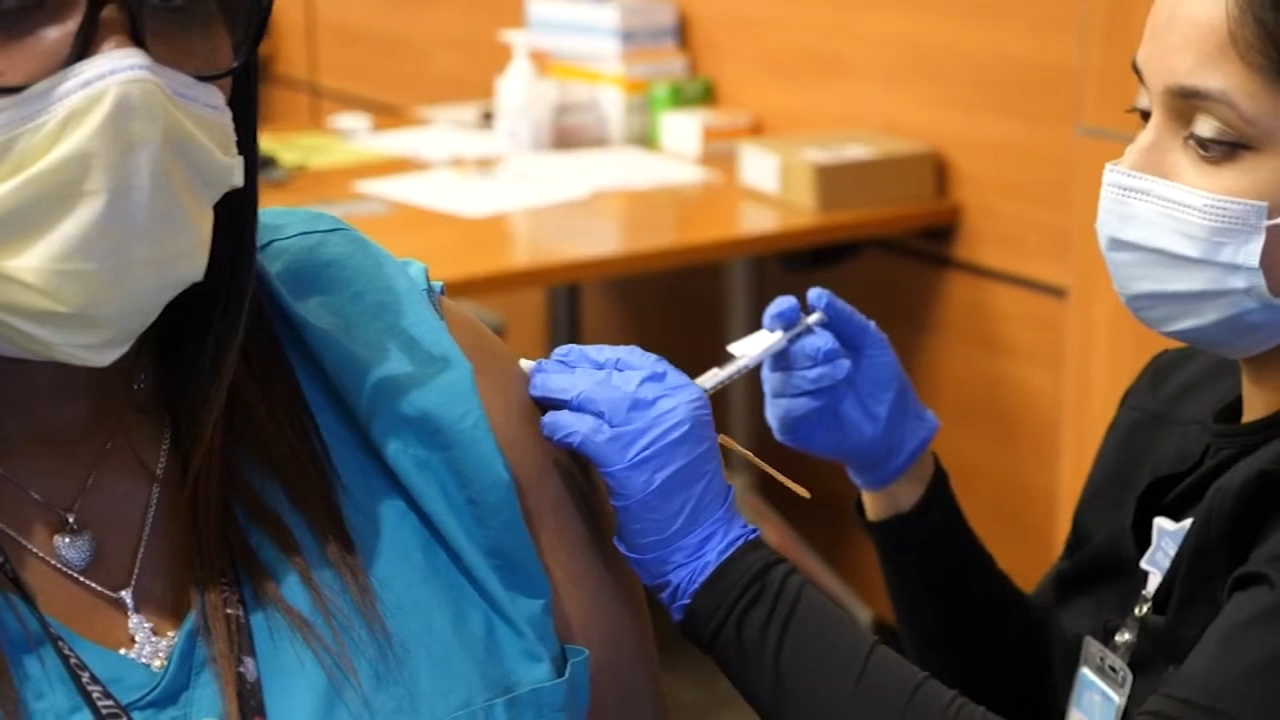Reports of menstrual cycle changes after COVID vaccine highlight issues with clinical trials


SAN FRANCISCO (KGO) -- On Monday, ABC7 News reported that some women are noticing changes in their menstrual cycles after getting COVID-19 vaccines.
Since then, hundreds of people have commented on the report, and women continue to express concern about long and heavy periods and changes in cycle timing.
A hematologist in Southern California reached out to ABC7 News reporter, Kate Larsen, with a possible explanation and advice.
PREVIOUS ARTICLE: Bay Area OBGYN explains why a COVID vaccine might affect menstrual cycles
"Inflammatory reaction has been noticed with the COVID vaccine. We know that because many, including myself after the second vaccine, developed some mild flu like symptoms," said Dr. Akshat Jain, a hematologist at Loma Linda University School of Medicine.
Dr. Jain specializes in bleeding disorders in adolescent women and explained that inflammatory cells triggered by the vaccine could affect hormones.
"That inflammation, has a potential or potentially can modulate estrogen response, which could be the link between certain women having heavy periods after the vaccine," she explained.
Dr. Jain recommends that women experiencing heavy bleeding see their doctor for a complete blood count and estrogen test.
VIDEO: Women more likely to experience serious side effects from COVID-19 vaccine, CDC study reveals

"It's an easily fixable problem," Dr. Jain said.
"So while, as scientists figure out the exact mechanism, which might take months, I think these are two actionable items that just need to be to be said out loud."
"There's a long history of us not doing a great job at studying women in research studies because of some of this complexity," said UCSF OBGYN, Dr. Heather Huddleston, who specializes in reproductive endocrinology.
Dr. Huddleston wishes the vaccine makers had collected data about menstrual cycles during the randomized trials.
"The train sort of left the station on that because we are now recommending the vaccine for everybody. So it will be very hard for us to generate a control group to answer this question," she said.
RELATED: At-home IV drip treatment relieves menstrual cramps for up to 48 hours
Since our story aired Monday, she's been thinking about ways to collect new data via apps that many women use to track menstrual cycles, saying, "We could look at just sort of what is the baseline rate of people having irregular cycles, or cycles that are different, and look at whether we're noticing changes in the population of women who've gotten the vaccine in the last few months."
Kate Larsen: "Do you think the vaccine is harmful to women who are experiencing these cycle changes and does it affect fertility?"
Dr. Heather Huddleston: "No. So what I would say is that just in the same way that some women and men have had a sore arm, after the vaccine, or maybe felt tired, maybe had even a low grade fever, these are all things that people experienced in a very short term way after the vaccine. And within a few days, people are back to normal. That is a transient reaction to the vaccine. And it's a representation of your immune system being activated. If, and it's still a big if. But if these menstrual cycle changes are also sort of linked into that upregulation of the immune system that we're seeing, then I would view that in the same way I would view a sore arm. It's a nuisance, it's troubling in that moment, but it's not a representation of something that's going to continue. It's not a representation of any sort of permanent harm or damage. There is no reason to think there's reason to be concerned over time, and there's no reason to think that there's any impact on fertility."
Dr. Huddleston says women should continue to get vaccinated.










